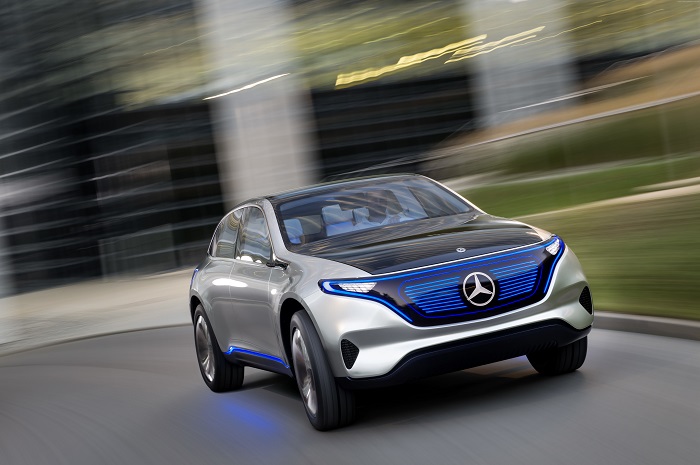Mercedes Benz India Limited (MBIL) is facing a supply crunch in electric vehicles, hindering its expansion in the segment despite the high demand for EVs worldwide. CEO and Managing Director Santosh Iyer has stated that the Indian subsidiary currently does not have clear visibility on the availability of cars. However, the company plans to launch four new EVs in the next 12 to 18 months.
Iyer attributes the lack of EV availability to high demand and factories in Germany catering to local demand. The current portfolio of MBIL has four EVs, which contribute about two to four percent of the company’s sales. However, Iyer has a clear roadmap and game plan to increase this to 25 percent within three years.
The adoption of EVs in India is becoming more product-led than market-led, with the EQB accounting for 70 percent of sales compared to the GLB’s 30 percent. Despite the higher price of the EQB 350, which is priced at Rs 77 lakh, demand remains high. Mercedes is making EV ownership seamless for customers by making prices competitive, offering a residual value of EVs similar to combustion vehicles, and making charging infrastructure available.
While Mercedes globally plans to stop making ICE vehicles by 2025 and transition to EVs by 2030, Iyer believes that in India, it will take another year or so. The survival of ICE vehicles will depend on the stringency of emission laws.
Iyer prefers the example of EQB and GLB, both seven-seaters priced similarly, to illustrate the adoption of EVs in India. Despite being similar cars, 70 percent of the take rate is for EQB, which is an EV, while 30 percent is for GLB, which is an ICE vehicle. He believes that once more products are launched, adoption will increase.
In India, customers buy first and look for solutions later. While charging infrastructure is still developing, customers are already purchasing EVs. MBIL plans to make charging infrastructure available to customers for free during the first year, providing plug-in chargers and adopters for peace of mind.
In conclusion, MBIL is facing a supply crunch in EVs that is limiting its expansion in the segment. However, the company has a clear roadmap and game plan to increase the percentage of EVs in its sales within the next three years. Iyer believes that the adoption of EVs is more product-led than market-led and that making EV ownership seamless for customers is critical. Finally, he believes that the survival of ICE vehicles will depend on the stringency of emission laws.
Disclaimer: While we strive to ensure the accuracy and reliability of the information provided on this website, we do not guarantee its completeness, accuracy, or reliability. The views and opinions expressed in the articles are those of the authors and do not necessarily reflect the official policy or position of www.newsproject.in. Readers are encouraged to verify the information independently before acting on it.

